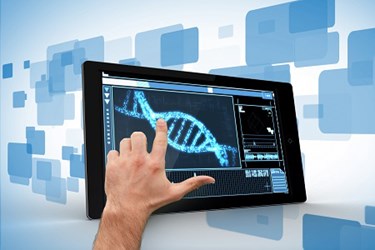Microsoft Buys Synthetic DNA From Twist Bioscience For Digital Data Storage Research

By Christine Kern, contributing writer

The experimentation will determine how much digital data strings of DNA can hold.
In order to perform experimentation for encoding digital data, Microsoft Corp. has agreed to purchase ten million long oligonucleotides from Twist Bioscience, a company accelerating science and innovation through rapid, high-quality DNA synthesis.
The research could have significant implications for digital data storage, particularly as the quantity of digital data is doubling every two years and storage capacity is falling desperately behind. “Today, the vast majority of digital data is stored on media that has a finite shelf life and periodically needs to be re-encoded. DNA is a promising storage media, as it has a known shelf life of several thousand years, offers a permanent storage format and can be read for continuously decreasing costs,” said Emily M. Leproust, Ph.D., CEO of Twist Bioscience.
Using DNA presents a new opportunity to create a viable data storage option. According to Twist Bioscience, DNA as archival technology avoids two significant limitations of traditional data storage: limited lifespan and low data density. The American Chemical Society has found DNA data storage could last as long as 2,000 years without deterioration and a single gram of DNA can store almost one trillion gigabytes of digital data. Or, to put it in layman’s terms, “[Using DNA,] you could fit all the knowledge in the whole world inside the trunk of your car,” Leproust told TechCrunch.
“Our silicon-based DNA synthesis platform offers unmatched scale and product quality that vastly accelerates the ability to write DNA at a cost enabling data storage. We are thrilled to work with Microsoft, and University of Washington researchers, to address the growing challenge of digital data storage,” said Leproust.
Meanwhile, the cost of genetic sequencing has also fallen significantly, going from $2.7 billion to map out just one whole human genome in 2003 to accessing your entire genome on your smartphone for under $1,000, according to TechCrunch.
“As our digital data continues to expand exponentially, we need new methods for long-term, secure data storage,” said Doug Carmean, a Microsoft partner architect within the company's Technology and Research organization. “The initial test phase with Twist demonstrated that we could encode and recover 100 percent of the digital data from synthetic DNA. We're still years away from a commercially- viable product, but our early tests with Twist demonstrate that in the future we'll be able to substantially increase the density and durability of data storage.”
